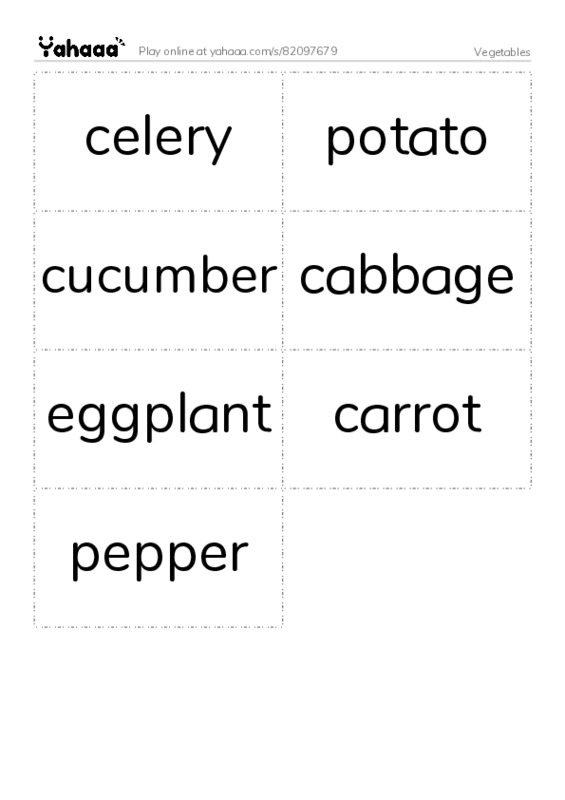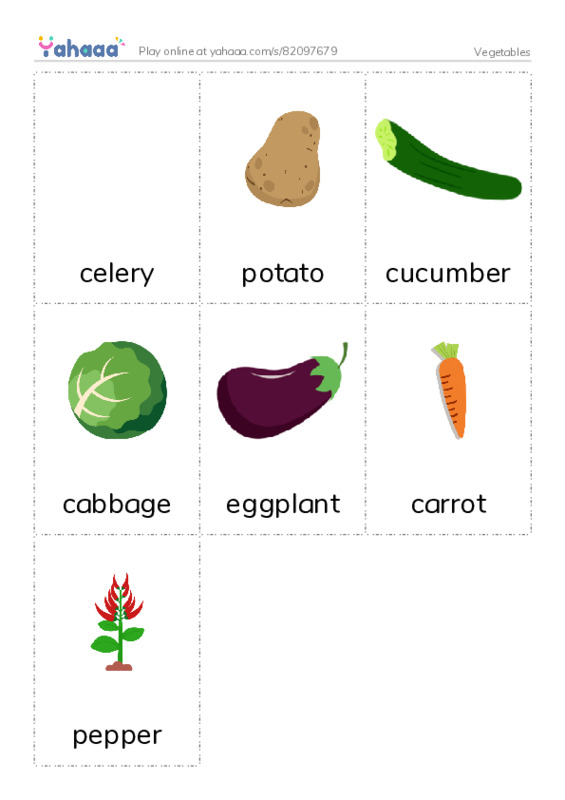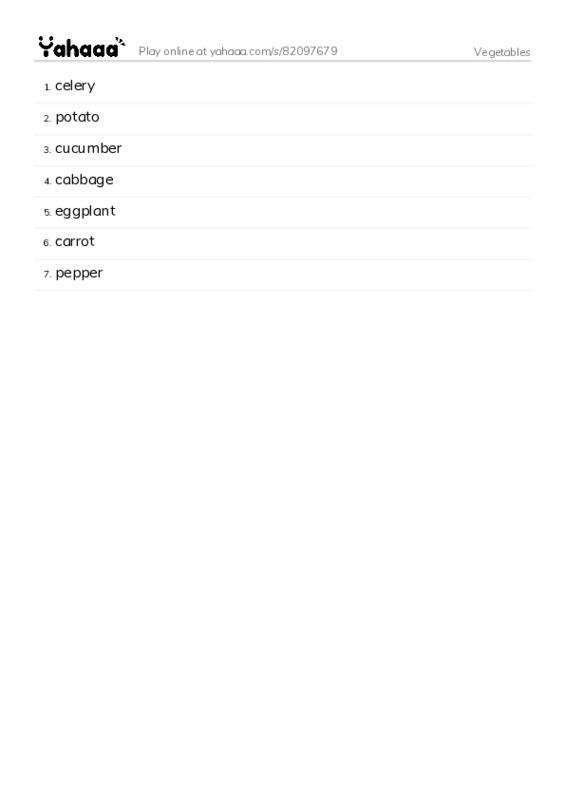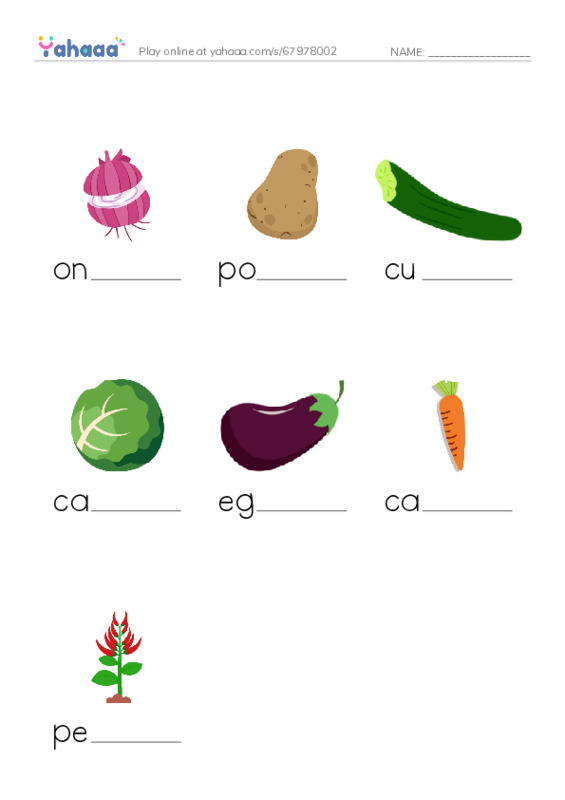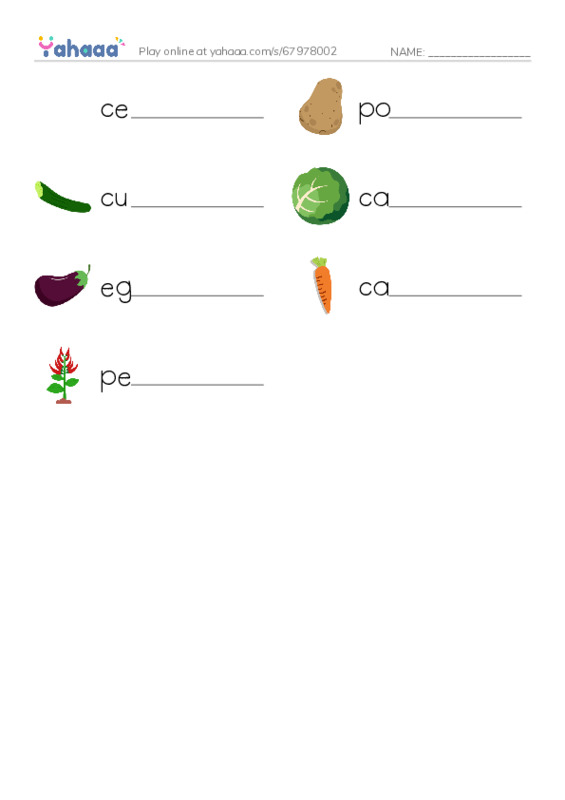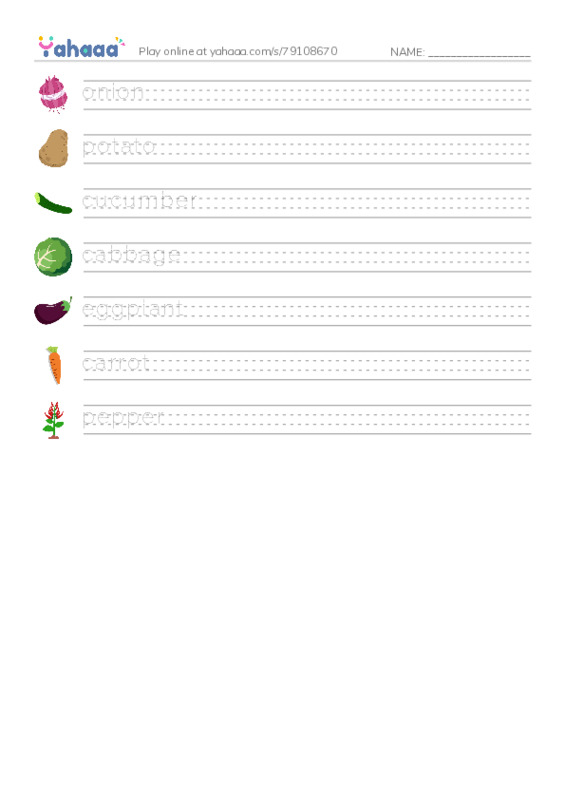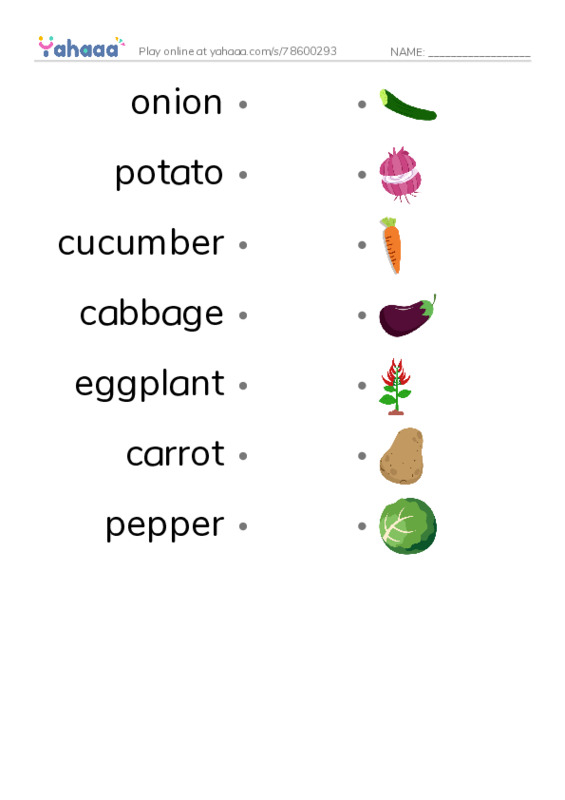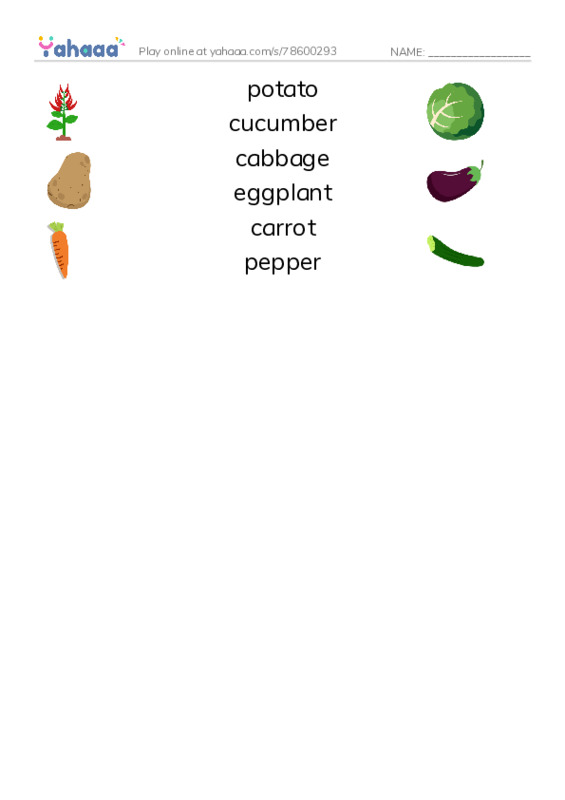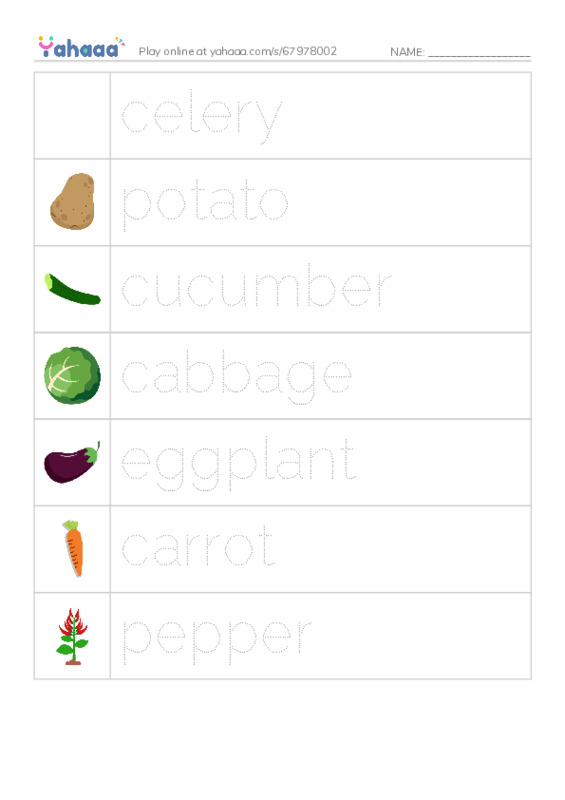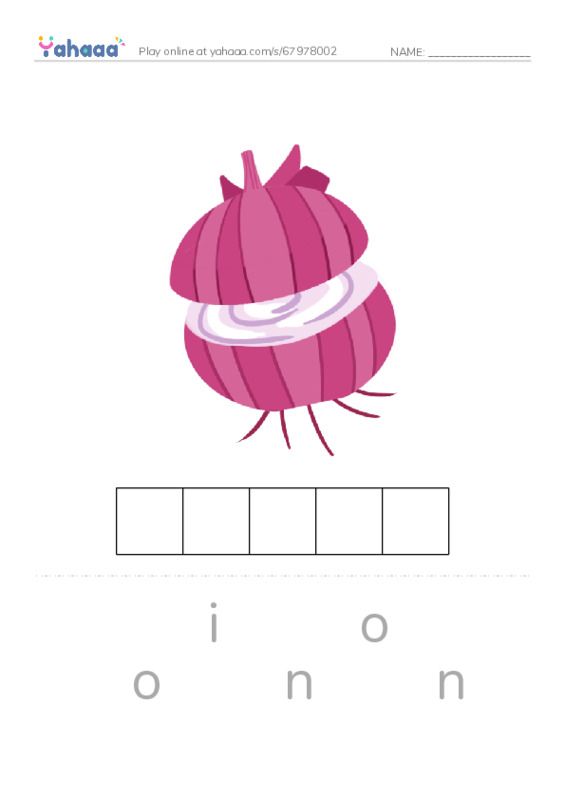The best vegetables Index cards!
A free and printable PDF index card worksheet for kids to learn about different vegetables and their uses in cooking is a valuable resource for parents and educators. The worksheet includes a range of different vegetables, each with its own image and vocabulary word related to cooking. For example, the worksheet might include an image of a carrot with the word "carrot" written beneath it, as well as the word "roasting" to show that carrots are commonly roasted in the oven. Or it might include an image of a potato with the word "potato" written beneath it, as well as the words "mashing" and "frying" to show that potatoes can be used in a variety of cooking methods. The worksheet is designed to help children learn the names of different vegetables, as well as to understand their uses in cooking and how they can be prepared. The worksheet is free to download and print, making it a convenient and cost-effective way for parents and educators to introduce children to the world of vegetables and cooking.
For who is this free and printable Yahaaa worksheet meant for?
It is difficult to determine what specific levels the free and printable PDF index card worksheet for kids to learn about different vegetables and their uses in cooking may be good for without more information about the worksheet itself. However, in general, worksheets like this one are often designed for younger children, typically those in elementary school or early childhood education. These worksheets are usually geared towards helping children learn basic vocabulary and concepts related to a particular topic, in this case vegetables and cooking. They may be used by parents and educators to help children learn the names of different vegetables, as well as to introduce them to the world of cooking and how different vegetables can be used in various recipes. Depending on the specific content and design of the worksheet, it may be appropriate for children of different ages and abilities. It is always best to review the worksheet carefully before using it with children to ensure that it is appropriate for their level and needs.
Why are index cards the right way for this?
Index cards are a good way to teach kids about vegetables because they are small, portable, and easy for children to handle. This makes them a convenient tool for parents and educators to use when teaching children about vegetables, as they can be taken with the child wherever they go and used for learning and review at any time. Index cards are also a versatile teaching tool, as they can be used in a variety of ways. For example, the cards can be used to create flashcards, with the vegetable image on one side and the vocabulary word on the other. Children can then use the cards to practice their vocabulary and test themselves on the names of different vegetables. Index cards can also be used to create games, such as matching the vegetable image to the vocabulary word, or sorting the cards into different categories, such as vegetables that are commonly roasted, boiled, or fried. These activities can help make learning about vegetables fun and engaging for children.
All in all...
It is a convenient and cost-effective way for parents and educators to introduce children to vegetables and cooking.
The worksheet is designed to be printed on index cards, which are small, portable, and easy for children to handle.
The worksheet includes a range of different vegetables, each with its own image and vocabulary word related to cooking.
The worksheet can be used to help children learn the names of different vegetables, as well as to understand their uses in cooking and how they can be prepared.
The worksheet can be used in a variety of ways, such as creating flashcards or games, to make learning about vegetables fun and engaging for children.
The worksheet is free to download and print, making it easy to access and use with children.

